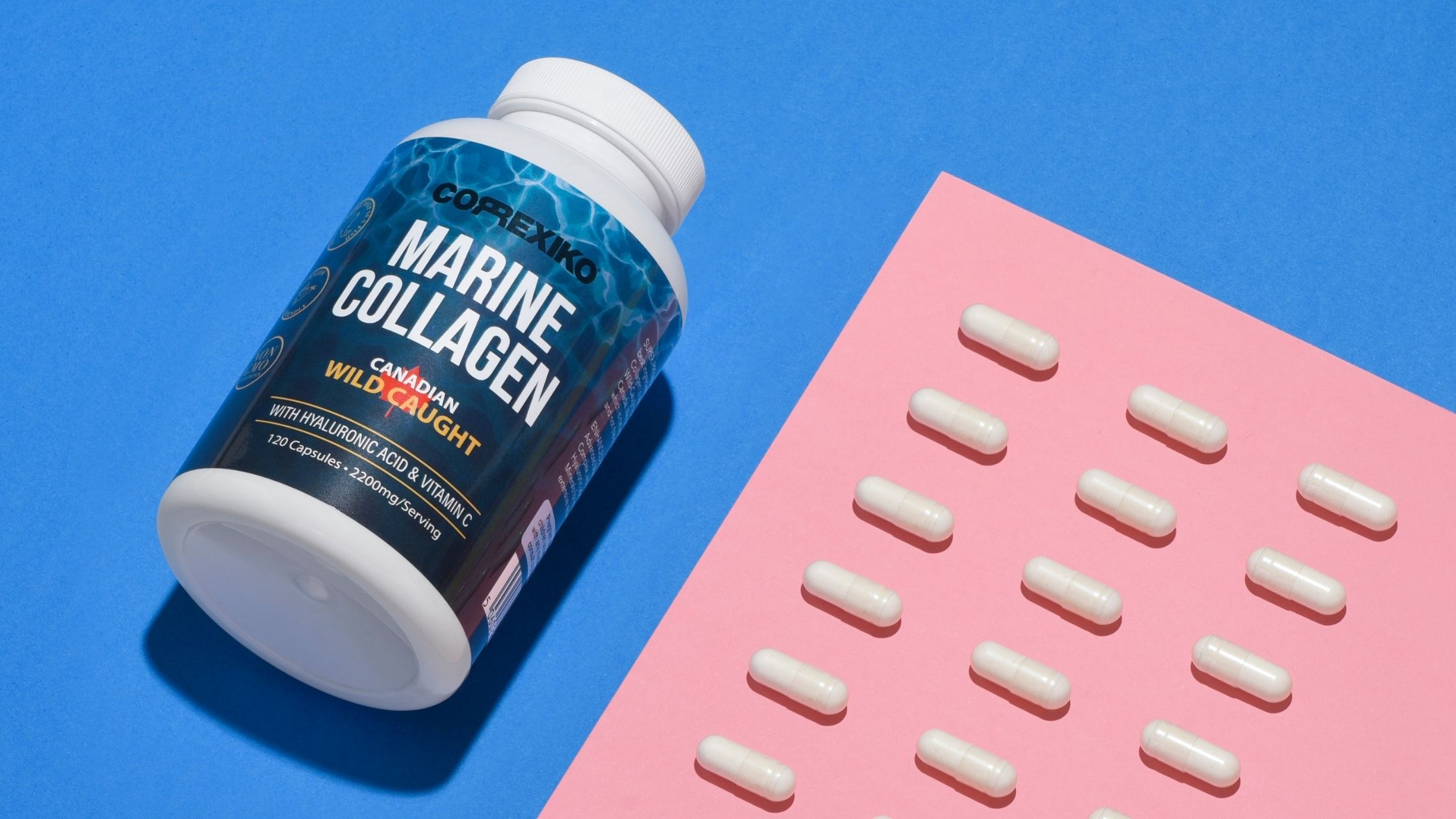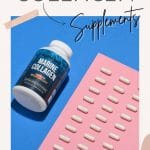

Disclosure: Some of the links in this article are affiliate links, which means that if you purchase through those links I will receive a small commission. For example, as Amazon Associate, I earn from qualifying purchases. If you decide to use these links, thank you!
You’ve probably heard of collagen supplements before, but you might not know exactly what they are or why collagen is important to your health.
Many people don’t realize that as we age our bodies produce less and less collagen. As a result, skin begins to sag, muscles begin to weaken and joint mobility suffers – leading to osteoarthritis in the knees and hips. This can be extremely painful for those suffering from this condition.
Today, I’ll go over everything you need to know about collagen supplements. This includes what they are, the two types of supplements, and their key benefits.
Collagen is the most abundant protein in the human body. It’s a type of protein that makes up about 30% of all proteins found in mammals. It’s responsible for a lot of things like maintaining healthy joints, skin elasticity (or lack thereof), bone strength, and hair growth.
As we age, our bodies create less collagen which naturally leads to wrinkles, weaker joints, brittle bones, and tooth decay.
There are 28 types of collagen that have been identified. Here is a closer look at the five most common types:
Collagen supplements are often the most convenient way for people to make sure they’re getting enough of this crucial protein.
And while it’s true that supplements don’t actually replace the collagen your body produces on its own, many studies show that there are benefits to taking collagen supplements1,2.
An increasing number of studies have shown that collagen supplements can help with:
Skin health: It’s found in the epidermis, so it’s no surprise that if you’re not taking enough collagen, your skin may suffer. Collagen stimulators are often used to reduce wrinkles and improve elasticity. They do this by making sure the collagen your body produces is in the parts of your skin where it’s needed most. It can also improve your hair and nails.
Muscle health: Collagen helps keep muscles strong and healthy, so taking extra can help you maintain a fit lifestyle while giving yourself a boost. It can also help with general muscle soreness and recovery time.
Joint health: It helps keep joints healthy by providing the necessary building blocks for your cartilage to stay strong so that you can enjoy more mobility without pain or discomfort. Studies have also shown that it can help to reduce inflammation and discomfort in the joints and bones.
Protection from chronic diseases: Collagen can help protect against chronic diseases such as diabetes, heart disease and arthritis. According to experts in recent studies, ingestion of 10 g PCH daily reduces the pain in patients with osteoarthritis of the knee or hip.
Digestive Health: Collagen can also play a vital role in building and maintaining healthy connective tissue throughout your digestive tract. Maintaining a strong digestive tract and stomach lining is extremely important for the prevention of a condition known as “leaky gut.” This condition may allow food and waste particles to pass into the bloodstream, causing an inflammation. Leaky gut can cause bloating, gas, stomach cramps, Irritable Bowel Syndrome (IBS), as well as sensitivity to foods that are wheat-based, high in sugar and contain gluten.
The two main types of collagen supplements are powder and capsules.
Collagen protein powders are made from a combination of hydrolyzed collagen that includes amino acid chains that form skin, cartilage, and other types of connective tissue. You’ll notice that some supplements are in the form of peptides. Collagen peptides are smaller chains of amino acids that can be easily digested and absorbed into your system.
Collagen capsules are also available if you don’t like the taste of collagen powder or prefer to take it in pill form. Yet, due to the amount of collagen you need to experience its benefits, you’ll need to take more than one throughout the day.
It can be difficult to get the recommended amount of collagen in your diet. Especially if you’re not eating enough collagen-rich foods like meat and bone broth. Supplements are a natural way of getting more into your diet so that you can experience its benefits.
What type of collagen supplements have you tried and how have they helped you? Let me know in the comments!
References:
1.Bolke, L., Schlippe, G., Gerß, J., & Voss, W. (2019, October 17). A Collagen Supplement Improves Skin Hydration, Elasticity, Roughness, and Density: Results of a Randomized, Placebo-Controlled, Blind Study. Nutrients. https://www.ncbi.nlm.nih.gov/pmc/articles/PMC6835901/#sec3-nutrients-11-02494title.
2. Moskowitz RW. Role of collagen hydrolysate in bone and joint disease. Semin Arthritis Rheum. 2000 Oct;30(2):87-99. doi: 10.1053/sarh.2000.9622. PMID: 11071580. https://pubmed.ncbi.nlm.nih.gov/11071580/

Article contributed by:
Manuel Conde
Bachelors of Science: Kinesiology; Exercise Science
American Council Of Exercise; Certified Personal Trainer
Functional Movement System Certified
https://www.eazymuscle.com/


